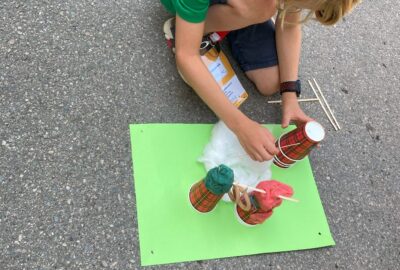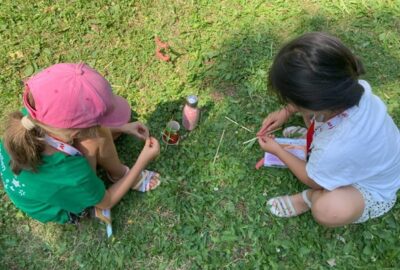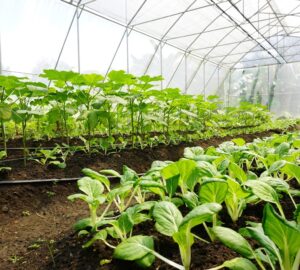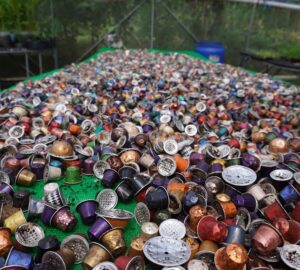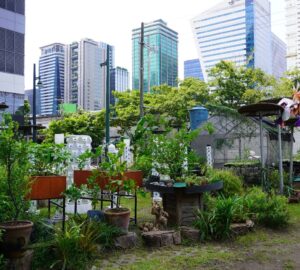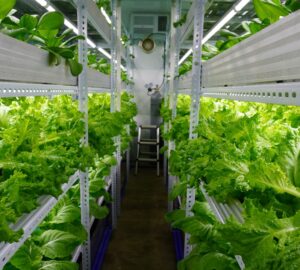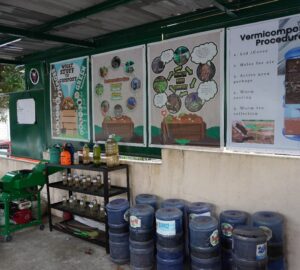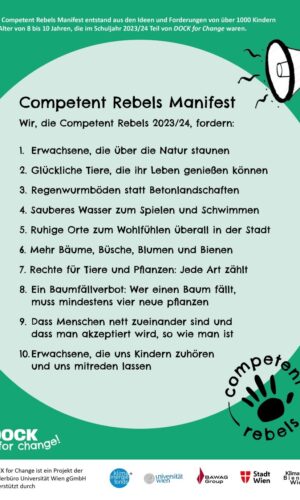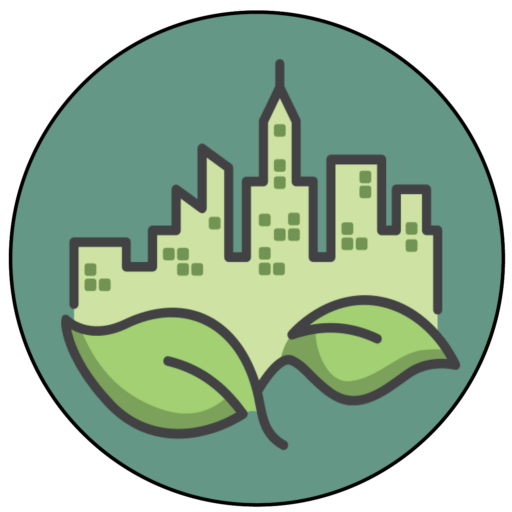Children and young people at the heart of World Cities Day 2024
This year’s UN-Habitat World Cities Day will take place on October 31, 2024 in Alexandria, Egypt. The motto “Youth leading climate and local action for cities” emphasizes the central role of young people as a driving force in tackling the climate crisis in urban areas. World Cities Day will highlight the ideas and concerns of young urban dwellers to make cities more sustainable, resilient and just.
This year’s World Cities Day is a good occasion for the USLL to highlight the role of young climate changemakers in urban transformations and to reflect on our work in this context.
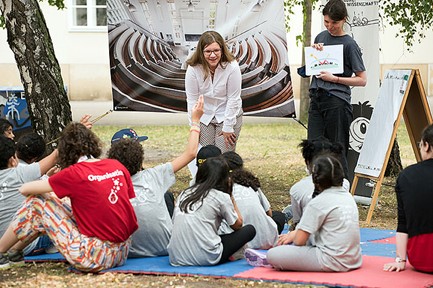
World Cities Day and Urban October
Urban October was launched by UN Habitat with the aim of raising awareness of the challenges facing cities and mobilizing the international community to work together for a sustainable future. Throughout October, activities, events, and discussions on urban sustainability will take place around the world. These will focus on the current challenges and opportunities facing urban areas, such as climate change, social justice, infrastructure, and quality of life. The events offer the opportunity to exchange ideas globally, discuss challenges and opportunities in cities, and strengthen international cooperation. Urban October starts with World Habitat Day at the beginning of the month and ends with World Cities Day on October 31. Each year, a global event is held in a different city to highlight current urban challenges and opportunities based on a selected urban theme.
Background to this year's motto
In cities around the world, young people make up a significant proportion of the population and their voices and engagement are crucial in shaping the future. It is predicted that by 2030, around 60% of the world’s population will live in cities, with up to 60% of these urban dwellers under the age of 18 (UN Habitat 2014, UN Habitat 2013). It is therefore important to actively involve young people in urban decision-making processes in order to make cities intergenerationally equitable and sustainable. By actively involving young people and enabling their participation in urban development, various urban stakeholders such as the administration, politicians, civil society organizations, and the private sector can benefit from their innovative strength and commitment in order to promote sustainable development. The participation of children and young people in political decisions helps to ensure that urban strategies reflect their needs, concerns and ideas, which ultimately leads to fairer and more effective solutions.
More information on UN-Habitat Urban October here.
“Change starts with each and every one of us. At the same time, I need to know that I can be an important part in change. It is therefore important to make children and young people in particular aware of their rights and opportunities.” – Yvonne
“Children seek spaces in cities for themselves, yet qualitative areas to play, learn or connect can be limited or not sufficently accessible. By empowering their voices and considering their needs, we can create more inclusive urban environments that benefit even more people than today.” – Johannes
“In order to use our research to contribute to urban development that is sustainable and fair for current and future generations, we are looking to work more closely with children and young people. They are the protagonists and experts of their reality and always bring critical perspectives and exciting ideas to research processes!” – Julia
The USLL contributes to the increased participation of children and young people in urban development processes through research, teaching and engagement with urban practice:
As part of the Children’s University (Kinderuni) at the University of Vienna, the Urban Studies working group designed and held a workshop with young urban researchers aged 7 to 9. Under the guiding theme of participation, we were able to find out with the children what participation means, what role their opinions and ideas play and what ideas they bring to the table.
Radio report Children’s University 2024
Photos: © Kerstin Krellenberg
More information in the blog post
Yvonne Franz worked with children from the children’s university to find where they live on the City of Vienna map and then compared these locations with the heat island map. Together they discussed where they feel the heat and what they do in the heat. They also talked about whether there are places that are even hotter. Some of the children thought about their relatives in Turkey, where it is sometimes 40 degrees or more.
Read more in the blog post.
“Sustainability, the city and YOU!” – twelve young urban researchers explored this topic on July 15, 2021 as part of a workshop at the Vienna Children’s University. The children, aged between seven and eleven, discussed sustainable places and practices in Vienna and designed their own models for their personal sustainable dream city of the future. As varied as the ideas for the sustainable city of the future were, all the children agreed on one thing: their city should be green and free of waste and cars.
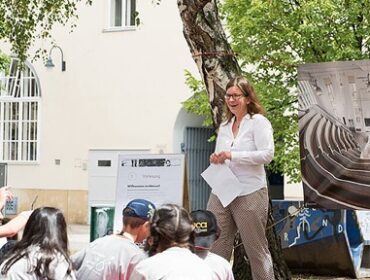
At the “Sustainability, the city and YOU!” workshop, Kerstin Krellenberg and Nele Kress worked with the children to think about how Vienna can become even more sustainable.
Photos: Barbara Mair, University of Vienna
Kerstin Krellenberg and Nele Kress were also on the road as part of the mobile children’s university.
Photo: © Barbara Mair, University of Vienna
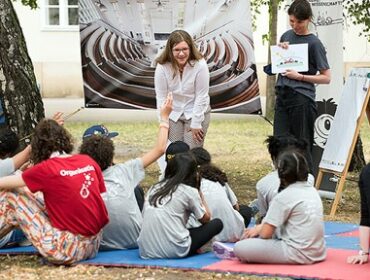
The GReenSCape project strives to better understand the multifunctional resilience benefits of different types of Urban Agriculture in Quezon City, Philippines. Of the numerous benefits, a central pillar is empowering youth through urban agriculture policies and programs which support hands-on learning. More specifically, in addition to the many urban agriculture workshops designed to inspire and educate Quezon City’s youth, hundreds of urban farming initiatives have been constructed near schools and orphanages throughout the city, which engage students and teachers in the development and ongoing maintenance of the farm. Students begin by learning about different aspects of agriculture, such as organic farming, aqua and hydroponics, and vertical farming, and then move onto the food system’s link to ecological systems, and the importance of conserving biodiversity, regenerating environmental systems, and implementing circular city approaches. Quickly, by observing the substantial positive impacts urban agriculture is making in Quezon City, students begin to realize how interconnected social and environmental systems are, and the ability of small changes to foster big impacts.
Click the photos to view the descriptions!
Photos: © James Vandenberg
“Children and young people already have a lot of great ideas on how to improve the city and how to address climate change. I think we need to listen and learn from them as well. The World Cities Day in particular highlights the importance of creating inclusive urban environments that enable young people to actively participate in change making.” – Sophie
Other projects with young climate changemakers in Vienna
What would happen if children decided what the future should look like? What changes would come about if children set the direction with concrete demands and ideas? This project focuses on the concerns and wishes of children and young people. Together with stakeholders from business and science, the aim is to find sustainable solutions to protect the planet. To this end, an innovation lab has been set up to promote a co-creative learning process.
Further information: DOCK for Change
In order to give children and young people the opportunity to have an active say in their city, the City of Vienna has founded the Children’s and Youth Parliament. Over 500 children between the ages of 5 and 20 are encouraged to take part in the political discourse with Vienna’s city government.
Further information: Statements from the Vienna Children and Youth Parliament and Vienna Children and Youth Strategy 2020-2025
“In a time where humanity is faced by multiple crises, the uncertainty of the future can at times feel overwhelming. Therefore, it is important to empower children and youth, not only with scientific knowledge and critical thinking skills, but also, with hope. Hope has the powerful ability to motivate and inspire young generations, and in turn, enable them to persevere in the face of change.” – James
“During my studies, I noticed that children and young people are rarely included in planning processes unless they are directly affected. Even in participatory processes, they are often left out. When I got to know DOCK for change in particular, I was not only impressed by the creative participation methods, but above all by the children’s ideas, which illustrated a truly unique transformative potential. Processes like these are essential for our society’s path towards a sustainable future.” – Hannah

